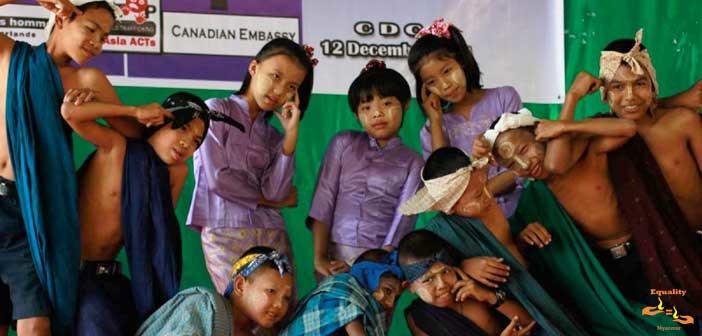 Another year has passed at the Human Rights Education Institute of Burma, bringing with it more changes than ever before. 2011 has seen a surge of reforms taking place inside Burma—the release of political prisoners, the election of National League for Democracy members to parliament, and the establishment of the Myanmar National Human Rights Commission, among others. After decades spent under authoritarian rule, the people of Burma have begun to glimpse the light at the end of a long and dark tunnel. These recent developments are as important in raising hope as they are in affecting international policy.
Another year has passed at the Human Rights Education Institute of Burma, bringing with it more changes than ever before. 2011 has seen a surge of reforms taking place inside Burma—the release of political prisoners, the election of National League for Democracy members to parliament, and the establishment of the Myanmar National Human Rights Commission, among others. After decades spent under authoritarian rule, the people of Burma have begun to glimpse the light at the end of a long and dark tunnel. These recent developments are as important in raising hope as they are in affecting international policy.
However, although the changes are encouraging, as activists and human rights defenders we are not yet convinced of their longevity or sustainability at the grassroots level. While new laws supporting the protection of rights have been enacted, others that uphold the tradition of repression and restrictions of freedom endure. As a community, we at once welcome the positive indicators of reform while at the same time remaining extremely cautious, ever-aware of the dangers of moving forward carelessly in haste.
For more than a decade, HREIB has been working for the protection and promotion of human rights in Burma. Through our experiences in human rights education, we have learned that changing leaders at the top of a community or nation does not automatically ensure the endorsement of human rights values such as universality and non-discrimination. For the principles of human rights to be upheld for all members of a society, there must be a change within each and every citizen—an awareness built on the ideals of not only respect for rights, but also responsibilities.
Specifications
- Publisher: HREIB
- Language: English
- Published: 2011
- Paperback: 24 pages






